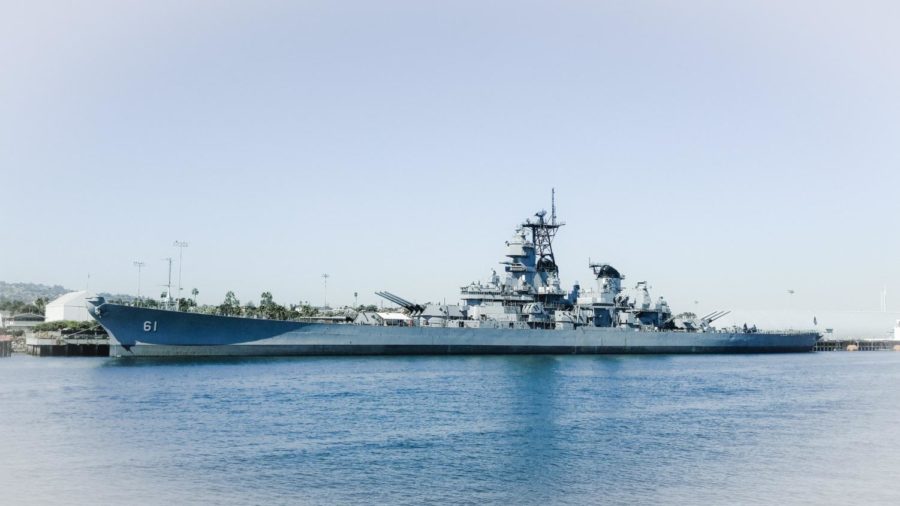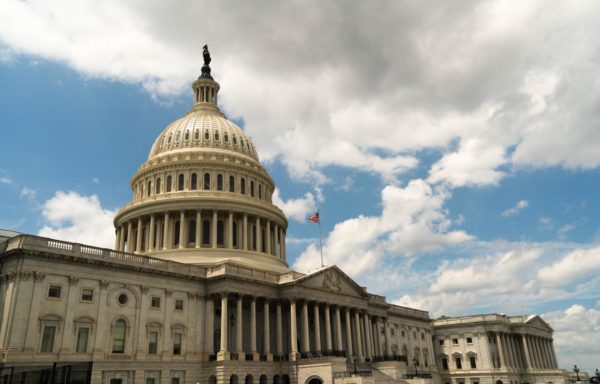The Tragic Events Aboard the USS George Washington
The USS George Washington
March 17, 2023
Content Guide: This article discusses mental illness, suicide, gun violence, and self-harm. Readers sensitive to these topics should proceed with caution. It is the primary topic of this article. If you or someone you know are thinking about hurting yourself or have suicidal thoughts, please contact the resources below.
24/7 Crisis Text line for bullying, stress, suicide, depression, anxiety, relationships, friendships, family problems, and self-harm: Text HOME to 741741
988 Suicide and Crisis Lifeline
Anne Arundel County Crisis Response System: 410-768-5522
The USS George Washington is a nuclear-powered aircraft carrier that was launched on July 21, 1990, and as of April 2022, had a crew of around 2,700. In a one-week span from April 9 to 15, Natasha Huffman, Mika’il Sharp, and Xavier Mitchell-Sandor died by suicide.
This tragedy launched an investigation of the “Proximate Causes of and any Correlation Between the Deaths”. This investigation had many results and findings but ultimately concluded that these deaths were not correlated.
Based on their findings, none of the sailors knew each other nor had they interacted near the times of their individual passings. The investigation also looked into a suicide contagion. Suicide contagion is the idea that if someone who is connected with, or otherwise hears about suicide, it can cause an increased risk of suicide or suicidal thoughts/behaviors. A redacted release of the results of a FOIA request of the report is available under “Available USFFC FOIA Records” in the drop-down menu for 2022 on the US Fleet Forces Command Website.
According to the report, “while SMO [Senior Medical Officer] did not believe there was the existence of…Psych Boss[Ship Psychologist] stated that it is always possible, due to the number of deaths that had occurred, but it was ‘hard to say.’” The report also found that “Multiple Sailors interviewed stated that some junior Sailors seemed to struggle with the ability to adapt to shipboard and shipyard life.”
As the report states, “Only IC3 Huffman had ever sought mental health care.” She was the only one of the three. Mitchell-Sandor and Sharp had not received mental health services, though the report discussed findings regarding the stress of the Navy and outside factors on their lives.
“For IC3 Huffman and MASR Mitchell-Sandor, it is clear that Navy life added stress to their lives. There is no indication that the events leading to RS3 Sharp’s suicide were aggravated by the Navy, other than the hypothetical concern of Navy discipline due to his interactions with local police stemming from the incident of domestic violence.”
Mitchell-Sandor, 19, had a lot of trouble adapting to the new lifestyle according to the report and showed many actions indicative of someone in need of help, yet they all seemed to be either ignored or unaware of by those in charge. Many times Mitchell-Sandor had complained about living conditions, including command, yet little was done about it.
“When off duty, MASR Mitchell-Sandor would always go to his car or to the galley to get a better cell phone and internet signal, primarily to talk to his family and friends back home. He also slept in his car on different occasions,” and, according to the report, senior enlisted leadership was aware he was sleeping in his car.
The report detailed the constraints of Mitchell-Sandor’s living conditions. He would also often drive from the ship docked in Virginia to his home in Connecticut and to see his girlfriend in South Carolina. He and his girlfriend had ended their relationship less than a month prior to his death. While he had made requests to not work aboard the ship, he had not fulfilled the requirements to transfer. The report found that he also had little desire to continue in the Navy and that he “told his parents he wanted to go to school for sports medicine after he got out. ” According to his step-brother’s account in the report, about two months before his death, Mitchell-Sandor was found holding a firearm, crying, and said, “He did not want to go back to the ship.”
Other facts about his passing listed in the report included how long it took them to notify his family after they knew he was deceased. The report states, “At 2320, after not establishing further communications with their son or GW, MASR Mitchell-Sandor’s parents departed for Virginia. They did not receive a phone call from the ship updating them on their son’s status until 0500 the next morning.” Mitchell-Sandor had been declared dead around 2222 and his parents were not made aware of this until almost seven hours later.
He had also committed many infractions of the ship’s leave policy and missed mandatory meetings to leave and see family which went unreported and undisciplined. It was also said by the report that Mitchell-Sandor has experienced the loss of a close friend-a friend whom he requested to be buried next to in his final text to his parents. This friend died in July 2021, and Mitchell-Sandor enlisted on March 26, 2022. Despite all of these factors he had access to a military firearm, which was the means by which he was able to carry out his suicide.
Sharp also worked onboard the USS GW during RCOH and complained about it, but the report said that he would “just make the best of it.” Sharp also “did not appear to have a mentor.” The report determined that Sharp died following a verbal and physical altercation with his wife that later involved the police. At some point after Sharp was found dead after the use of a firearm.
Unlike Sharp and Mitchell-Sandor, Huffman received mental health support as opposed to the other two aforementioned individuals. As a result of her mental health, she did not remain working entirely aboard the USS GW. She had been seeing a civilian mental health counselor and had been prescribed many different medications and diagnoses throughout this span of time.
According to the report, “In summer 2020, Huffman was admitted to NMCP after a suicide attempt,” but it “was not reported in the Defense Information Service System.” The report said that a missed appointment after a supervisor prevented her from taking time off to see a mental health professional led to the provider dropping her as a patient and that she had reported “having daily thoughts of wanting to end her life.”
This tragedy not only shows how the people in charge of the officers lacked aforethought and appropriate responses needed for mental health crises but also how stigmas around mental health affect individuals. These people were all under immense stress and needed support, which in some cases, they were said not to have reached out for.
These tragedies are just that, tragedies. Yet there are things that can be done both proactively and reactively to avoid them. Checking in on loved ones can help prevent suicides and other things from happening. Many people have struggles that may be unapparent, by supporting family and friends, especially those in stressful situations or that have a history of mental health problems, these tragedies can become fewer.








